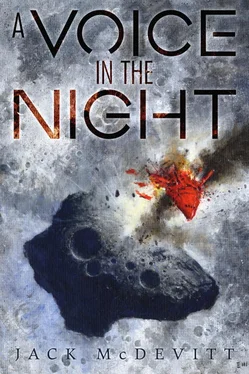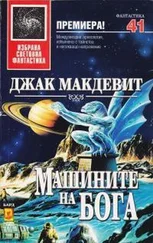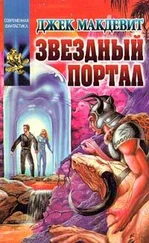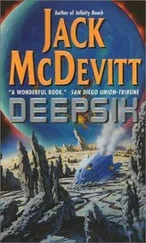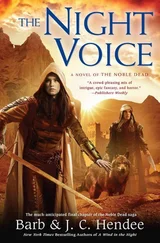“You’re shy?” Arnold grinned broadly.
“I don’t think of myself that way.” He paused. “Perhaps you’d care to describe your own reproductive method. In a manner that someone unfamiliar with your anatomy could understand easily?”
Arnold grinned. “Okay.” He picked up a twig, looked at it, and threw it away. “I get your point.” The wood was quiet. He tried to imagine what it might feel like to be completely alone in a strange place. “Are you all right?” he asked. “Is there anything I can do for you?”
“You’ve already done it. Thank you.”
“You’re welcome.” Neither spoke for several minutes. Arnold, out of breath, slowed down and finally stopped altogether. He sat on a fallen trunk. “Traveler, what are you thinking about now?”
“How comforting the tree belt feels. At home, the open spaces are very attractive. Here, they are full of danger. So I enjoy hiding in them. Does that make sense to you?”
“Yes.” It didn’t, but Arnold did not want to sound slow-witted.
“It is one of the things we have in common, Arnold.”
“I don’t think I understand.”
“You, too, are more comfortable in the wind screen than you are in town. Why is that?”
“It’s not so.”
“Of course it’s so. Why do you deny it, when it’s evident?”
“It just happens that I enjoy the view from here.”
“And the solitude.”
“That too.”
“Precisely my point.”
Arnold threw his head back and laughed. “Everybody likes to be alone sometimes. There’s nothing unusual about that.”
“Perhaps you’re right.”
“Of course I am.” He got up, touched his toes a couple of times, and began to walk.
“You know, Arnold, you’re good company.”
“Thank you.”
A wall of air touched him. It felt almost solid. It crowded him, sucked at his clothes, ran up his legs, moved across his throat, pushed his sweatshirt up and exposed his belly. “Cut it out,” he said.
Laughter rippled through the trees.
They traveled through the early evening, stopping in groves, looking out across the river.
“When I was a boy, I used to play up here.”
“Were you alone then?”
“No. Never.”
“Where are the others now?”
“Most are married. Busy with their lives. One’s dead. In the war. And Floyd.”
“What about Floyd?”
“Nothing. He changed. He was away for a lot of years. Came back to claim his property when his folks died. But he wasn’t the same when he came back.”
“How do you mean?”
“Don’t know. He was just different.”
“The intimacy had gone out of your relationship?”
“Floyd’s not somebody you’re intimate with. But yes, in a way.”
“It sounds as if you are no longer close to any of your old friends.”
“It’s called ‘growing up.’” When was the last time they had come up here together, he and Floyd and Susan Halley and Hunt Jacoby and the others? When had they decided the forays into the Black Forest no longer served a purpose, and should stop? They had failed to mark the occasion with appropriate ceremony. And that was what pained him, not that they had bolted their cool forest empire, but that there had been no final gathering of the force, no final farewell, no appreciation of what it had meant. “And you, Traveler: what drives you to come so far?”
Arnold was growing sensitive to the creature’s moods, as one reads temperament from a human expression or tone. He could feel its uncertainty, watch the movement of its currents among the leaves matting the forest floor, observe its slow passage through brambles and branches.
“I love this world, Arnold. I love to gather its warm atmosphere around me, and to race across oceans before its boiling storms. To cruise silently over deserts, and to ride its thermal currents up the rock towers in the west. I wish there were a way to share these sensations with you.”
“It sounds as if you plan to stay.”
“I might. For a time.”
“Don’t you miss your home world?”
“Home is where I am.”
Another of their long silences followed. Arnold, not paying attention, almost walked into a tree. “If you don’t mind my asking,” he said, “was your companion killed near here?”
“Yes.”
Again, the trees moved.
Arnold understood it did not wish to pursue the topic. “Do you eat?” he asked.
“No. I collect energy directly.”
Another long silence followed. He listened to lapping waves. The stirring of grass and leaves. “Will you be okay?”
“Yes.” The word drew out, expanded, rose, and floated away over the trees. Then, “We have visitors.”
The last light was fading out of the sky. “Who, Traveler? Who’s here?”
“Who you talking to, Arnold?” Bill Pepperdine’s voice. Arnold turned in his direction, and saw him standing beside an elm. Flashlights switched on. Four of them. Mike Kramer was off to the right. And Tom Pratkowski. And, half-hidden behind Pepperdine, Floyd. “Anybody see a monster here anywhere?” asked Kramer.
They laughed.
Pratkowski cupped his hands around his mouth. “Hey, Critter,” he sang out. “Welcome to Fort Moxie.”
The laughter turned to roars. They howled and clapped one another on the back and staggered around. One of them held out a beer for Arnold. “We have visitors,” Pepperdine said. “Hello, out there.”
Floyd hung back.
Arnold looked desperately toward the treetops. “Say something, Traveler. Tell them you’re here.”
They were shouldering one another, having a good laugh, and shaking their heads, the way people do sometimes when they discover an old friend is no longer bolted down very tight. “Yeah, say something,” said Kramer, speaking to a box elder. “Don’t just stand there.”
The only one not laughing was Floyd.
Arnold’s gaze swept across them. Hard to believe: They had been his friends and neighbors for years.
“Arnold,” Floyd said, “I’m sorry.” He started forward. Kramer was grinning. “It’s okay, Arnold. We all have our little quirks.”
Arnold walked between them, past Floyd without meeting his eyes, and went back into town the way he had come.
Next day was a little strange at the Lock ‘n’ Bolt. People came in, as always. They bought chisels and sandpaper and shelving, as always. But they didn’t much ask for help, and their eyes were kind of off-center when they came over to pay up. They looked the other way a lot, and Arnold felt as if he were something of an oddity in his own store.
He considered passing on Clint’s at lunchtime, because Floyd would be there, and possibly some of the others. But maybe this was an important moment for him. Maybe he should not allow himself to be frightened off.
Floyd was in a booth toward the rear, with Lem Harkness and Rob Henry, both from the Federal Building.
Max Klinghofer, who owned Clint’s, was wiping the lunch counter. When he saw Arnold, he wiped harder. And Arnold felt the heat rising into his cheeks. Floyd was facing away from the door, but someone must have alerted him. He turned around, and waved cheerfully. As if nothing had happened. But his face reddened.
The place was filled, as it always was at noon. People he had known a long time looked up, nodded, smiled. But there was a distance in some expressions, and nervousness in others. As his gaze passed over each table, its occupants fell silent. Arnold was reminded of those old westerns in which someone notorious strolls into the Lost Lode Saloon.
Читать дальше
